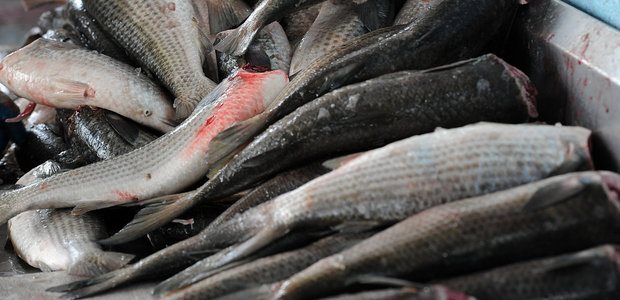
EU Commissioner: Address Overfishing Globally
Maria Damanaki, the European Commissioner for Maritime Affairs and Fisheries, said the EU's "zero tolerance against illegal fishing" is succeeding, and 27 stocks in the North Sea and Atlantic are being fished sustainably this year.
Maria Damanaki, the European Commissioner for Maritime Affairs and Fisheries, praised the EU's progress on sustainable fishing and said fishing overcapacity must be addressed globally, in her March 13 speech at the Conference on Fishing Capacity in Thessaloniki, Greece. She said 27 stocks in the North Sea and Atlantic are being fished sustainably this year, five more than a year ago, and that number will increase to 31 next year.
"Our zero tolerance against illegal fishing is also bearing fruit," she said, according to the posted version of her remarks. "Three countries risk losing trade with us and many others are adapting to our requirements. Our attitude towards our imports is much more thorough, cautious, meticulous.
"We have also managed to bring down our fleets quite substantially. Today, we focus public support on diversification, innovation, and sustainable techniques. We are finding alternatives to the unacceptable practice of discarding – that is the practice of throwing perfectly health fish back in the sea. And when our fleets fish in the waters of others, they only fish the surplus according to the Law of the Sea, and within scientifically safe margins. So, in the European Union, we have reformed our system in an efficient way. But we can't just look at our own backyard. In fact, our new legislation specifically says that we are to project the same principles abroad; that we must help create a level playing field; that we must promote responsible action at all levels. This is a key point: No matter how much progress we make domestically, if overexploitation goes on elsewhere, then we all lose."
She said effectively addressing fishing overcapacity at the global level is essential, adding, "Reducing capacity is the way to go – and in any case this will be an integral part of our overall plan. What is also advisable is a carefully designed mix of structural and conservation tools, like rights-based systems, tighter controls, and incentives for diversification.
"There is no shortage of rules and guidance: We have the Law of the Sea, the Fish Stock agreements and other UN provisions, we have FAO action plans, the so-called 'Kobe recommendations.' We have the endorsement of the Rio+20 Conference. A lot is being said but, all too often, little is being done," she added. "We need to put the problem of excessive fishing power back on the map, back on the international agenda. We need a renewed political will. And we should agree on the way forward. We should discuss, benchmark, create alliances. These are all necessary steps towards any political solution. They are the prelude to proper, reasoned action. And it is high time we start."